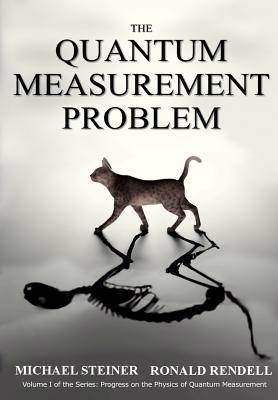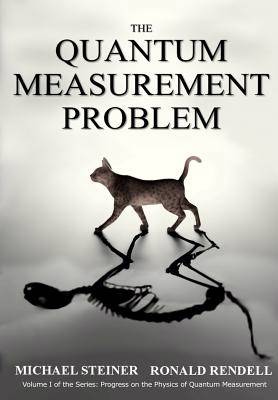
- Retrait gratuit dans votre magasin Club
- 7.000.000 titres dans notre catalogue
- Payer en toute sécurité
- Toujours un magasin près de chez vous
- Retrait gratuit dans votre magasin Club
- 7.000.0000 titres dans notre catalogue
- Payer en toute sécurité
- Toujours un magasin près de chez vous
Description
The Quantum Measurement Problem (QMP) is a single resource for information on the QMP and it establishes a basis for research on what is arguably the most well-known and still-unresolved scientific problem: how does our observed world relate to the quantum? The book is suitable for both undergraduate level study on a selective basis as well as graduate level study and for use as a resource for research scientists interested in aspects of the QMP. There are many sections that can even be profitably read by the general public to appreciate the history and future importance of the QMP. Although many books are now available that adequately address Quantum Information, this is the first book offering a comparable treatment for the QMP. The QMP has a companion website, https: //theqmp.com, with video presentations and other resources.
There are some in the physics community that view the QMP only as a problem that requires an interpretation while others view its solution as essential to complete our physical description of the world and enhance our ability to design experimental probes of its physical elements in terms of quantum physics. This book critically examines these two viewpoints and resolves this dichotomy in favor of the latter viewpoint. The problem is precisely defined in terms of experimental operations and the scientific requirements that a resolution would have to meet. It explains why the QMP is a physical problem that requires more than an interpretation for its resolution and why a solution could have profound implications for physics as well as other fields. In particular, it uses quantum information methods for a constructive demonstration that unitary Schrödinger processes can be experimentally distinguished from measurement processes using well-established techniques such as Bell measurements, which would establish that measurement is a non-unitary process. Neither Schrödinger's equation nor the measurement postulate is found to be sufficient to explain measurement. For the first time, The QMP offers a single resource that thoroughly assesses the strengths and weaknesses of the major approaches to the QMP. .
The exposition in The QMP contains eight chapters, including problem sets, with dual tracks throughout the book that allow both those with a technical background in quantum physics or quantum information as well as less-technical readers to come up to speed on the QMP, depending on their interests and background. .
- Chapters 1 and 2 are an introductory-level presentation of wave-particle duality and unitary Schrödinger processes.
- Chapter 3 is a key chapter that uses quantum information methods for a constructive demonstration that unitary Schrödinger processes can be experimentally distinguished from measurement processes using well-established techniques such as Bell measurements, which would establish that measurement is a non-unitary process.
- Chapter 4 presents a detailed definition of the QMP in terms of experimental observations and uses the results of Chapter 3 to systematically evaluate the strength and weaknesses of all the major approaches to the QMP in the literature and determine which constitute physical theories as opposed to philosophical interpretations.
- Chapter 5 gives an uncensored historical perspective leading to the development of quantum physics from the viewpoint of those physical aspects which will ultimately form the elements of the QMP.
- Chapter 6 presents a unique discussion of the Scientific Method and how the use of scientific deduction within the approach of radical conservatism can most proficiently address problems of quantum foundations.
- Chapter 7 presents concepts and mathematical tools useful for further research developments of both closed and open system approaches to the QMP.
- Chapter 8 presents conclusions and the status of the QMP for moving forward.
Spécifications
Parties prenantes
- Auteur(s) :
- Editeur:
Contenu
- Nombre de pages :
- 492
- Langue:
- Anglais
- Collection :
- Tome:
- n° 1
Caractéristiques
- EAN:
- 9781732291003
- Date de parution :
- 17-08-18
- Format:
- Livre broché
- Format numérique:
- Trade paperback (VS)
- Dimensions :
- 170 mm x 244 mm
- Poids :
- 775 g

Les avis
Nous publions uniquement les avis qui respectent les conditions requises. Consultez nos conditions pour les avis.






